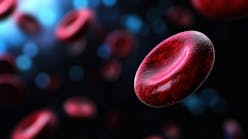Pathology departments often need the expert opinion of a specialty pathologist or require a secondary consultation, a process that can take several days or weeks to facilitate in a large healthcare system or at a remote hospital location. Pathology tissue specimens are typically shared by shipping the glass microscope slide between locations — a cumbersome process that involves a significant amount of administrative labor and time. Furthermore, glass slides cannot be in more than one location at a time, which makes it difficult for two pathologists to engage in discussion without traveling to meet at the same location.
In a digital-pathology environment, hospitals can leverage remote viewing capabilities by making entire digital slide images of specimens such as blood smears or frozen sections available online for immediate review by a remote pathologist. With an Internet connection and viewing software, hospitals can have access to a “virtual pathologist” who can provide expert opinion from another hospital or any remote location, vastly improving quality of service, community outreach, and access to coverage in a remote setting or even globally.
Digital slide sharing
Juan Rosai, MD, a world-renowned expert and consultant in surgical pathology, has established relationships with a number of pathologists who often refer cases and ship glass slides to him in Milan, Italy. Two of these pathologists include Javier Arias-Stella, MD, of the Instituto de Patologia y Biologia Molecular in Lima, Peru, and Marcello Franco, MD, PhD, of the Federal University of Sao Paulo in Sao Paulo, Brazil. Sending glass slides through international customs proved to be time-consuming, cumbersome, and, sometimes, unreliable.
The physicians participated in a pilot study to test and measure the effectiveness and efficiency of using a digital slide-sharing service for obtaining a consultation without having to ship slides. The pilot utilized a digital slide-sharing service for sharing pathology slides domestically or internationally. The slide-sharing service makes it convenient and cost-effective for pathologists to share digital slides with others, regardless of location. Through secure transmittal of images to a global data center, images can be accessed and shared with authorized parties. From the global data center, stored images are accessible via passcodes for instant access by expert pathologists.
The objectives of the slide-sharing pilot included
- improving the pathologists’ satisfaction with the overall experience of obtaining a consultation;
- improving efficiency, especially turnaround time, by making it faster to get a consultation by sending the case slides digitally instead of through the mail, thereby eliminating glass-slide logistics;
- enabling access to subspecialty expertise by making it easier to obtain a consultation from a leading consultant, especially in circumstances where it is difficult to send glass slides outside of the country; and
- determining whether the image quality of viewing consultation slides via the slide-sharing service is satisfactory.
A five-month study was conducted in the second half of 2008. Three months were dedicated to testing the technology, and the remaining two months concentrated on the professional aspects of obtaining a consultation, such as turnaround time and image quality.
Data were collected through interviews and e-mail surveys of the participants to evaluate and understand user experiences and benefits gained from use of the service. The slide-sharing database was also analyzed to capture the sample size and measure turnaround time.
During the pilot, slides requiring outside expertise were scanned with a whole-slide scanner and automatically archived locally. The slides were then organized into a case file and a copy was uploaded to the slide-sharing database. Once on that database, they were available for consultation by Rosai. A total of 69 cases comprising 211 slides were referred to him.
Benefits derived
Using a slide-sharing service to facilitate consultations resulted in successfully achieving the objectives of the pilot. Satisfaction with the process of obtaining a consultation increased for all participants. The physicians agreed that using the service to share the case slides was a far better experience than shipping the glass slides.
Turnaround time for obtaining a consultation was markedly improved. Pathologists were able to share slides in a matter of hours rather than weeks, and access to subspecialty expertise was successfully facilitated. The service eliminated the need to ship glass slides, effectively tearing down geographical borders and making external expertise accessible in a reliable manner.
Image quality was determined very satisfactory for viewing consultation slides. An additional benefit realized was that all parties were able maintain a record of the exact same slide, which could be retrieved and reviewed by either the referring or the consulting pathologist at a later time, or by both pathologists simultaneously in cases where there were questions about the consultation, or a discussion was required.
Digital pathology and digital slide-sharing services offer a technological advance and cost-effective solution to help improve the experience of obtaining a consultation by vastly enhancing turnaround time and eliminating the time and expense of glass-slide logistics.
Academic medical centers and pathology practices with a concentrated level of sub-specialty expertise can leverage digital slide-sharing capabilities for community outreach by providing efficient access to internal pathology expertise at remote hospitals. Digital slide-sharing services can be incorporated into a differentiated services model, which will provide competitive benefits and increase client satisfaction.
Chrystal Adams is a product manager at Aperio which produces SecondSlide. She can be reached at [email protected].





